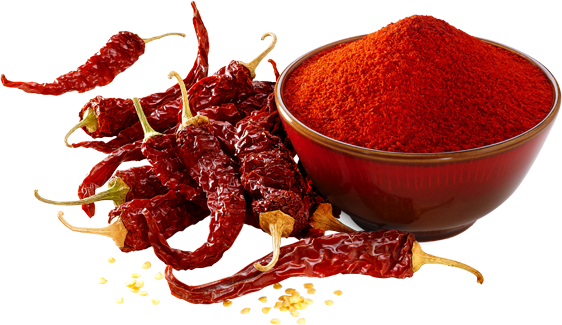Red Chilly
Chili peppers have been a part of the human diet in the Americas since at least 7500 BC. There is archaeological evidence at sites located in southwestern Ecuador that chili peppers were domesticated more than 6000 years ago, and is one of the first cultivated crops in the Central and South Americas that is selfpollinating.
| Botanical Name | Capsicum Frutescens |
| Family Name | Solanaceae |
| Part Used | Fruit |
| Harvesting Season | During January, February, March, April and May |
| Labelling | As per buyer’s requirement |
| Packaging | 25 Kilos/ 50 lbs laminated paper bags with liner. |

Nutritional Value
Red chilies contain high amounts of vitamin C and carotene (pro-vitamin A). Yellow and especially green chilies (which are essentially unripe fruit) contain a considerably lower amount of both substances. In addition, peppers are a good source of most B vitamins, and vitamin B6 in particular. They are very high in potassium, magnesium, and iron. Their high vitamin C content can also substantially increase the uptake of non-heme iron from other ingredients in a meal, such as beans and grains.

